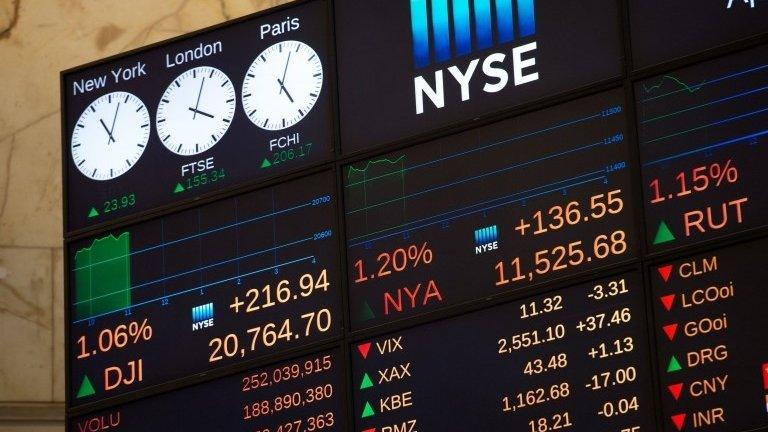French election: Hollande urges nation to back Macron and reject Le Pen
- Published
Hollande: "What's at stake is our idea of France"
President François Hollande has called on French voters to reject far-right candidate Marine Le Pen and back Emmanuel Macron to succeed him.
The pair will face each other in a run-off vote on 7 May after taking the top places in Sunday's first round, with Mr Macron the current favourite to win.
Mr Hollande said a far-right victory would endanger the country.
He said: "What is at stake is France's make-up, its unity, its membership of Europe and its place in the world."
His brief TV address on Monday reflected a move by much of France's mainstream to line up behind Mr Macron to try to stave off Ms Le Pen.
Earlier, defeated candidates, the Republicans' François Fillon and Socialist Benoît Hamon, both urged supporters to vote for Mr Macron.
Ms Le Pen quickly renewed her attacks on Mr Macron on Monday, calling him a "weakling" for his anti-terrorism policies.

Read more:

The victory of Ms Le Pen and Mr Macron meant that, for the first time in six decades, neither of France's main left-wing or right-wing parties had a candidate remaining in the election.
The pair will hold a TV debate on 3 May, aides to Mr Macron said on Monday.
President Hollande said the far-right would threaten the rupture of Europe, "profoundly divide France" and "faced with such a risk, I will vote for Emmanuel Macron".
He said his former economy minister would "defend the values which will bring French people together at such an important moment, a serious time for Europe, the world and France".
But the BBC's Hugh Schofield in Paris says the support of Mr Hollande will be a mixed blessing for Mr Macron, as it will serve as a reminder to the French people that he was previously a close adviser and minister of the unpopular head of state.

%
Emmanuel Macron

%
Marine Le Pen
Please enable Javascript to view our poll of polls chart.
When he conceded defeat, the conservative Mr Fillon, who was third on Sunday with 20%, said there was "no other choice than voting against the far-right".
However, the position of the fourth-placed candidate, hard-left Jean-Luc Mélenchon, who took a creditable 19.6%, was still unclear.
He pointedly refused to back Mr Macron, whose pro-EU, pro-business and pro-globalisation stance is diametrically opposed to his anti-austerity, eurosceptic approach.
Steeve Briois, vice-president of Ms Le Pen's National Front (FN), said it was hoping to win over Mr Mélenchon's supporters, who he called "outside the system".
Voters take our yellow chair challenge
"The voters who voted for Mr Mélenchon are angry voters. They can be in agreement with us," Mr Briois told the Associated Press.
However, an IFOP poll on Monday of Mélenchon supporters suggested that 51% would vote for Mr Macron and only 19% for Ms Le Pen.
Protesters who burned cars at the Place de la Bastille and Place de la Republique in Paris overnight were chanting "No Marine and No Macron!"
The latest opinion poll, by Opinionway, suggested a second-round victory for Mr Macron by 61% to 39%.
But there were warnings from Mr Macron's own party following a glitzy victory celebration at a Paris bistro that the job was not yet done.
"We need to be humble. The election hasn't been won and we need to bring people together to win," Richard Ferrand, secretary-general of Mr Macron's En Marche movement, said.

The National Front said that while Mr Macron's supporters were recovering "from their showbiz evening", Ms Le Pen was out canvassing in a market in a small northern town.
She quickly attacked her rival: "Mr Macron is a weakling. Here we have a candidate who doesn't have a programme to protect the French people from the threat posed by Islamist terrorism."
She added: "He is a hysterical, radical 'Europeanist'. He is for total open borders. He says there is no such thing as French culture."
In other developments:
The Grand Mosque of Paris called for French Muslims to vote for Mr Macron
The police union Alliance (to which Xavier Jugelé, murdered by a gunman in Paris last Thursday belonged) urged police officers to vote against the FN candidate
What does Mr Macron stand for?
At 39, Mr Macron could become the youngest president France has ever had - and the first president in the Fifth Republic who does not belong to a major party.
He secured 8.4 million votes - more than any other candidate - in the first round.
Mr Macron was Mr Hollande's economy minister but quit to create En Marche.
Emmanuel Macron: "I hope to become your president"
His campaign promises include:
Cut 120,000 public sector jobs and bring down the budget deficit
A €50bn (£43bn; $53bn) public investment plan to cover job-training and shift to renewable energy
Slash corporation tax from 33% to 25% and let companies renegotiate 35-hour week. Unify the pension system
Bolster EU ties and the eurozone, higher tariffs to protect European industry, common border force
In a victory speech to supporters, Mr Macron said: "I hope that in a fortnight I will become your president. I want to become the president of all the people of France - the president of the patriots in the face of the threat from the nationalists."
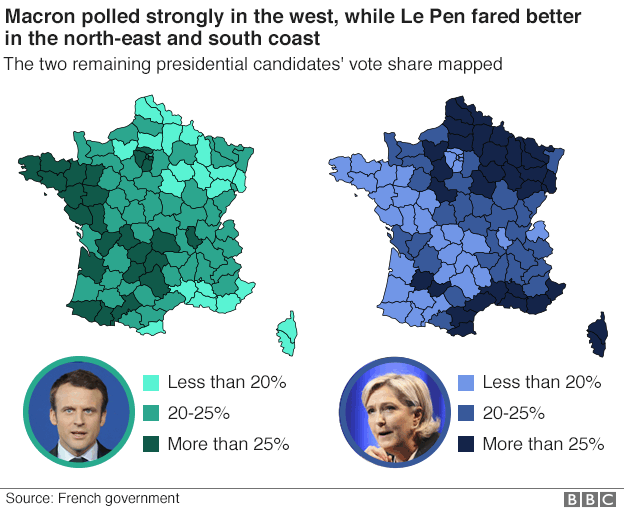
What about Ms Le Pen?
Ms Le Pen, 48, took over the FN leadership from her father in January 2011 and helped her party secure big gains in regional elections.
She won 7.6 million votes on Sunday - the strongest ever result for a FN candidate, and 2.8 million more than her father, Jean-Marie Le Pen, won for the FN in 2002.
Marine Le Pen: "I am calling on sincere patriots... to join me"
Her campaign promises include:
"Automatic" expulsion of illegal immigrants and legal immigration cut to 10,000 per year
Abandon the euro (and return to the franc), renegotiate France's EU membership, then hold a "Frexit" referendum
Lower retirement age to 60 and 35-hour week assured
Ban wearing of "ostentatious" religious symbols such as Muslim headscarves and veils in public. "Extremist" mosques closed and priority to French nationals in social housing
Following the first round results, Ms Le Pen made an "appeal to all patriots", saying a vote for her was the key to the "survival of France".

Are you a French citizen? What is your reaction to the result of the first round? You can share your comments by emailing haveyoursay@bbc.co.uk, external.
Please include a contact number if you are willing to speak to a BBC journalist. You can also contact us in the following ways:
WhatsApp: +44 7555 173285
Send pictures/video to yourpics@bbc.co.uk, external
Tweet: @BBC_HaveYourSay, external
Text an SMS or MMS to 61124 (UK) or +44 7624 800 100 (international)
- Published23 April 2017
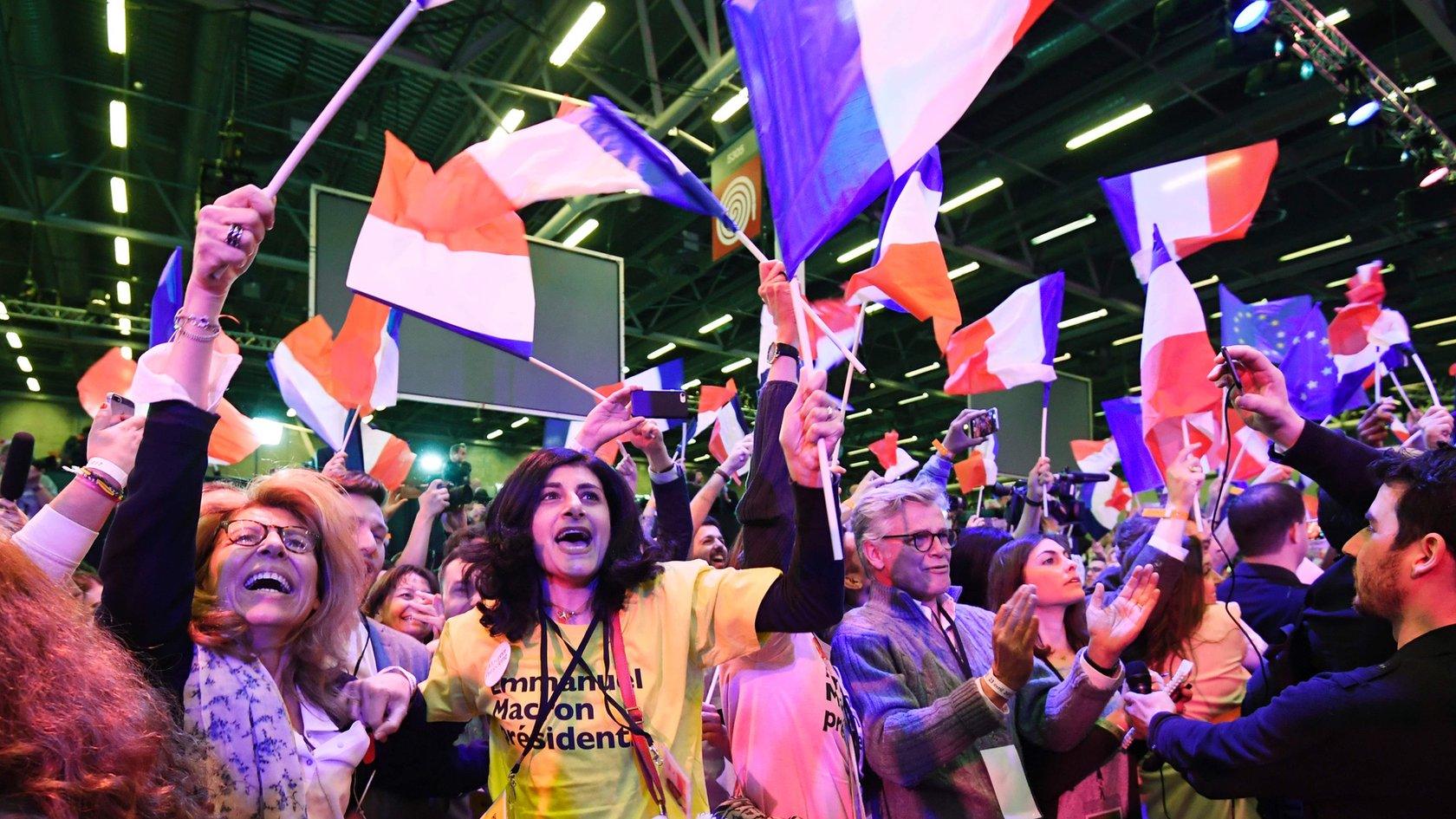
- Published24 April 2017
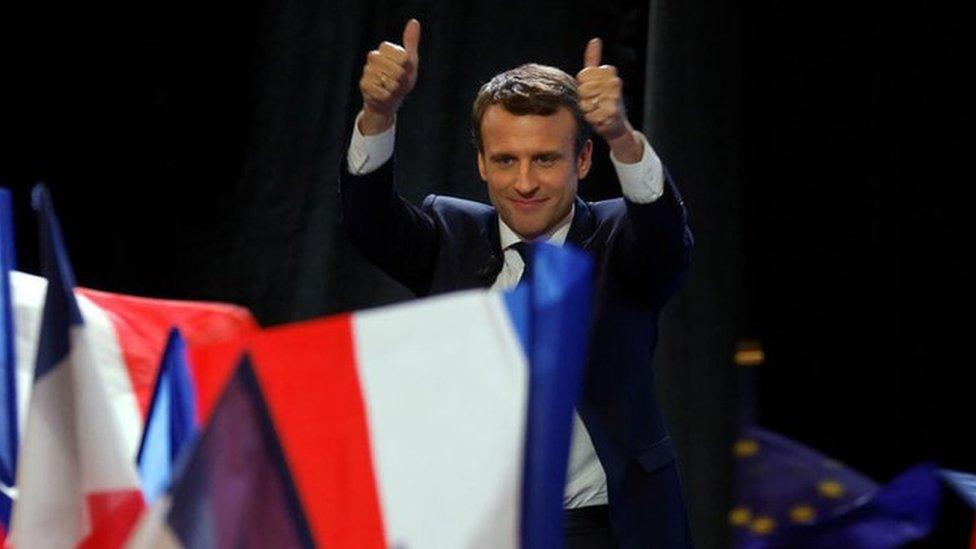
- Published24 April 2017
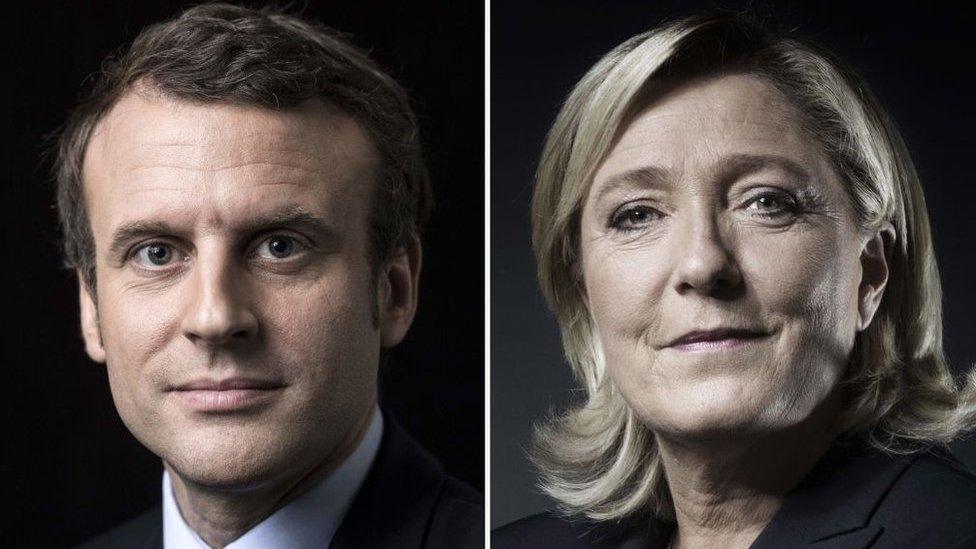
- Published24 April 2017
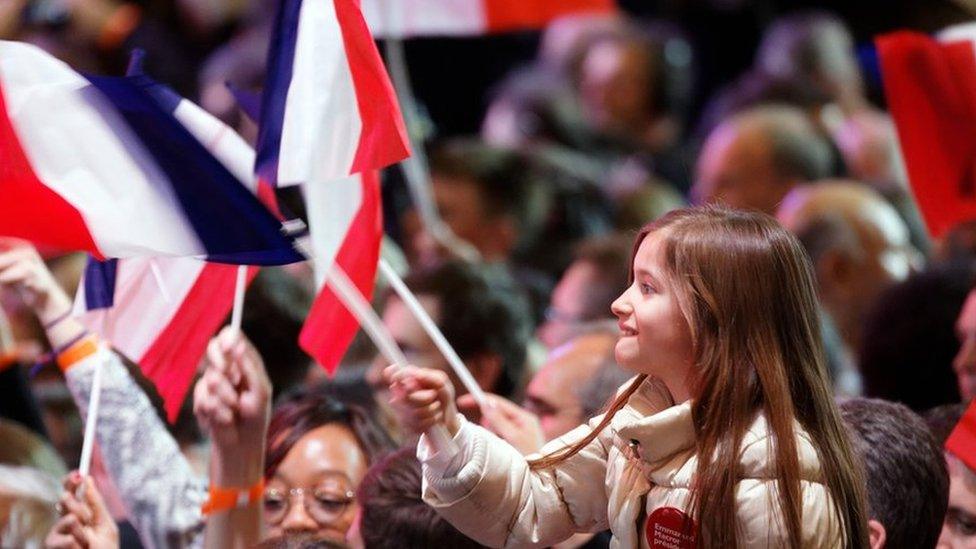
- Published24 April 2017
- Published25 April 2017
